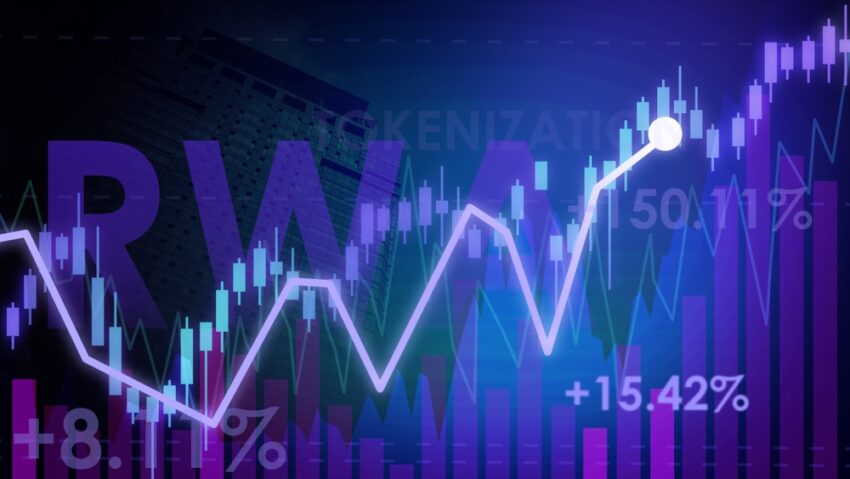Chainlink co-founder Sergey Nazarov urges the US to leverage robust and reliable capital markets to have a competitive advantage in tokenizing real-world assets (RWAs).
During New York’s Digital Asset Summit, the executive indicated that the US should establish a competitive moat targeting the secure tokenization of real-world assets to ensure its competitiveness amid the borderless and permissionless finance era.
US Trails in Booming Tokenization?
In his response to an interview conducted by Cointelegraph’s Turner Wright, Nazarov profiled that blockchain is now a global phenomenon utilizing open-source software and distributed tech, unlike other technological shifts.
The executive observed that while online commerce granted the US the competitive advantage, it arose from the five- to ten-year head start on internet infrastructure development, which is currently non-applicable in the present digital finance age.
Nazarov indicates that the US should push two core advantages: a strong domestic market and the capability to create highly reliable financial assets. He suggests the present administration and legislators now understand these details.
Nazarov notes that real-world tokenized assets could hit $100 trillion as more units are onboarded on the blockchain.
Record Figures for Tokenized RWAs
Recent data by RWA.xyz shows that real-world tokenized assets, excluding the stablecoins, hit a new peak in 2025, exceeding $18.8 billion.
The data shows private credit had the largest share of RWA market capitalization, accounting for $12.2 billion in tokenized instruments. Asset tokenization will help transform the illiquid classes, including real estate, thus eliminating the existing illiquid discount observable in the physical properties.
Last month, Polygon chief executive Marc Boiron revealed that tokenizing the real estate will fractionalize ownership. This will help eliminate intermediaries and reduce settlement costs in the process, stimulating the slow-moving sector.
The tokenization of real estate will overhaul the sector, as witnessed in Turkey, where Lumia Towers utilized Polygon’s technology to onboard the 300-unit commercial development.
Elsewhere in UAE, the global hottest property market is witnessing a tokenized RWA boom as developers and institutional developers embrace digital asset regulators in capital formation.
Bringing Ark Invest’s Funds On-Chain
The Ark Invest and Coinbase executives have signalled plans to onboard the tokenization space this month amid optimism for a clearer regulatory landscape. The Ark Invest chief Cathie Wood expects some of the company’s funds to be on-chain, though it awaits regulatory clarity in the US. Wood admitted during the Digital Asset Summit that tokenization will be huge and that her company will likely tokenize the Venture Fund (ARKVX). She added that she anticipates the regulations will open up, allowing the company to seize the opportunities to tokenize.
The US regulators have yet to have a clear framework to guide security token registration, thus challenging entities to unveil products in the booming sector destined for a multi-trillion-dollar market by December 2030.
Executives from the US’s largest crypto exchange, Coinbase, hold a similar outlook to that of Ark Invest, though it is still vague as it attempts to gain a foot in tokenization. Coinbase chief financial executive Alesia Haas informed the audience during the recent Morgan Stanley Technology, Media and Telecom Conference of Coinbase, engaging the US Securities and Exchange Commission (SEC) to unveil a security token. This is the second attempt with Coinbase failing to pursue the product in 2020.
Nonetheless, Jesse Pollack, behind Base, Coinbase Ethereum Layer 2 network, revealed the absence of concrete plans to tokenize the Coinbase crypto exchange stock. He considers the initiative still within the exploratory phase, indicating the team is prioritizing understanding the requirements for onboarding $COIN in a safe and compliant manner.
Why This Matters
The interest in tokenization portrays it as beyond a buzzword and will likely redefine and revolutionize financial services and capital formation. The process of transforming assets within the physical world into digital tokens by using blockchain will enable companies to tap into liquidity, transparency and accessibility. Besides the need for regulatory clarity, the US should leverage its strong domestic market and the capability to create highly reliable financial assets to remain competitive in the tokenization.

